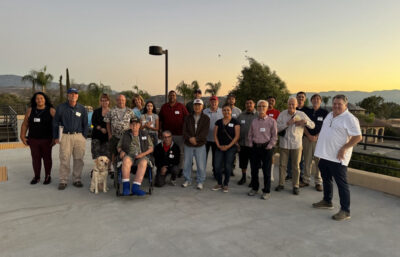I once worked with a founder who nearly gave up on offshore development after a six-month contract with a bargain-basement vendor fell apart. Missed deadlines, endless scope changes, and poor communication cost him far more than he’d saved on hourly rates. But a few months later, he tried again. This time, partnering with an offshore agency that provided structured standups, strong technical vetting, and clear escalation paths. Same time zones, same price bracket, completely different outcome.
That experience stuck with me. Offshore development isn’t automatically risky; it’s risky when you treat it like a commodity rather than a strategic partnership. The reality is, some offshore vendors deliver excellent quality, speed, and cost efficiency, as long as you know what to look for.
If you’re considering offshore development, the question isn’t just where your team sits. It’s how they work. Here’s how to pick the right partner and a list of the best companies to start your search.
Top 3 Quick Picks: 2025’s Best Offshore Development Companies
- Somewhere: Best for Cost-Efficient, Fully Managed Remote Teams
- End-to-end team recruitment
- Flat-fee, no retainers
- 6-month guarantee
- Toptal: Best for On-Demand Elite Freelancers
- Rigorous vetting process
- Flexible contract options
- 3% acceptance rate
- BairesDev: Best for Scalable Nearshore Teams
- Large Latin American talent pool
- Agile development specialists
- US time-zone overlap
Want a deeper dive? Keep reading for what to look for in an offshore partner and full reviews of these agencies, plus others.
How to Choose the Right Offshore Development Company
1. Understand Your Own Delivery Model
Before evaluating any offshore partner, get brutally clear about your own priorities. Do you want a fully dedicated team that functions as an extension of your in-house staff, or are you looking for short-term freelance talent to tackle specific tasks? Is time zone overlap critical, or can your team work asynchronously? I’ve seen startups waste months because they jumped at a cheap hourly rate without realizing they’d have to manage a dozen freelancers across six time zones. Offshore development can absolutely work, but only if the engagement model fits your operational rhythm and communication style. Define your desired team structure, level of oversight, and project management approach before you even start speaking with vendors. The right agency should slot into your business like a missing puzzle piece, not force you to overhaul your processes to accommodate theirs.
2. Evaluate Their Technical Vetting Process
Not all offshore vendors test technical skills equally. Some merely glance at resumes, while others conduct rigorous coding tests, pair programming sessions, and problem-solving assessments. A reputable agency should be able to explain, in detail, how they evaluate candidates for both technical proficiency and softer skills like communication and collaboration. I once worked with an offshore partner who rejected 95 percent of applicants during vetting; the quality of the resulting team was phenomenal. Ask for specifics about how they screen candidates, what technical challenges they use, and how they measure code quality. The difference between a solid offshore partner and a poor one often comes down to how seriously they take vetting. You’re not just hiring developers; you’re hiring problem-solvers who can operate in your business context.
3. Check Communication and Management Structure
Because offshore development can involve language differences and time zone gaps, strong vendors rely on structured communication to keep projects running smoothly. Ask about their management practices: Do they run daily standups? Who owns task tracking and status reporting? Is there a dedicated project manager who bridges the time zones and prevents details from falling through the cracks? A friend of mine scaled his SaaS startup successfully offshore because his partner provided a single point of contact who handled everything from updates to escalating issues. Look for agencies who use modern tools like Jira, Slack, or ClickUp, and who can demonstrate how they manage time differences without sacrificing speed. Good communication processes are the safety net that keeps offshore development from turning into an expensive game of telephone.
4. Demand Transparent Pricing and Contracts
Low hourly rates can be seductive, but they often hide landmines like vague scope definitions, hidden fees, or endless “change requests.” I’ve seen founders lured by $15/hour quotes only to discover ballooning costs from unexpected extra work or opaque billing. A good offshore partner is completely transparent about how they charge. Whether that’s a fixed monthly team fee, per-sprint pricing, or time-and-materials. They should provide clear Statements of Work that spell out deliverables, timelines, and processes for handling changes. Insist on seeing sample contracts and request precise cost breakdowns. Offshore development can indeed save you money, but only if you have financial predictability and a shared understanding of how costs will be managed when requirements evolve. Avoid vendors who dodge questions about rates or deliverables.
5. Consider Cultural and Time Zone Alignment
The right offshore team doesn’t just speak your language; they understand your business culture. Differences in communication style, feedback loops, and decision-making can cause frustration if ignored. For instance, teams in Eastern Europe often have excellent technical skills and similar work culture to Western Europe or the US, while Latin American teams offer strong time zone overlap and cultural affinity for US clients. A founder I know works exclusively with a Colombian team because their real-time collaboration and direct communication style fit perfectly with his company’s fast-paced environment. Think about how critical live meetings are for your team, and whether you’re equipped to manage asynchronous work if time zones don’t align. Offshore success depends as much on shared work culture as it does on technical capability.
6. Look for Post-Hire Support and Guarantees
A quality offshore development agency doesn’t disappear once the contract is signed. They remain involved to ensure developers integrate well, address performance concerns, and replace talent quickly if needed. I’ve worked with partners who offered generous replacement guarantees (sometimes up to six months) if an engineer didn’t work out. Ask about the agency’s escalation process, retention efforts, and how they handle underperformance. Do they proactively check in with clients? Are there periodic performance reviews? Good agencies act like a talent partner, not a temp shop. The best offshore engagements feel like an extension of your in-house team, with your partner invested in your long-term success. Don’t settle for a vendor who leaves you on your own after the hire is made.
The 7 Best Offshore Development Companies
1. Somewhere – Best for Cost-Efficient, Fully Managed Remote Teams
- Founded: 2009
- Headquarters: Dallas, Texas
Why Somewhere is the best offshore development partner:
Somewhere specializes in building fully managed offshore development teams that function as seamless extensions of a client’s in-house operations. They handle every step of the process: sourcing talent, vetting technical and communication skills, managing onboarding, and providing ongoing HR support.
Unlike traditional recruiters or marketplaces, Somewhere operates on a flat-fee model with no retainers or percentage-based markups. This offers predictability for budget-conscious startups and growth-stage companies. Every hire comes with a six-month guarantee, significantly reducing hiring risk.
Clients particularly value Somewhere’s emphasis on cultural fit and communication processes. They ensure time zone overlaps where needed, run daily standups, and provide a single point of contact to manage the offshore team.
Their strongest networks are in the Philippines and Latin America, where they’ve developed relationships with highly skilled engineers who combine technical expertise with strong English fluency. For companies wanting high-quality development capacity without the burden of managing offshore HR or legal complexities, Somewhere stands out as a strategic partner rather than just a staffing vendor.
2. Toptal – Best for On-Demand Elite Freelancers
- Founded: 2010
- Headquarters: Wilmington, Delaware
Toptal has become synonymous with top-tier freelance talent. They accept only about three percent of applicants, running candidates through multiple stages of screening, live problem-solving, and soft-skills assessments. This makes them a go-to option for companies seeking specialized skills. Whether that’s blockchain, AI/ML, niche front-end frameworks, or high-scale architecture work.
Toptal’s strength lies in speed and flexibility. Businesses can engage freelancers on an hourly, part-time, or full-time basis, often within days. However, Toptal’s premium pricing reflects the caliber of talent; it’s best suited to firms willing to pay more for specialized expertise or critical projects requiring immediate traction. Toptal also offers a risk-free trial period, giving clients confidence before fully committing.
3. BairesDev – Best for Scalable Nearshore Teams
- Founded: 2009
- Headquarters: San Francisco, California
BairesDev is one of Latin America’s largest outsourcing companies, providing development teams to clients ranging from Fortune 500 corporations to fast-scaling startups. Their nearshore model is highly attractive for U.S.-based companies because most of their workforce operates in overlapping time zones.
BairesDev employs rigorous vetting and English fluency requirements, which helps minimize communication friction. They’re particularly strong in Agile software development, enterprise application modernization, and digital transformation projects. For businesses looking to scale engineering capacity quickly without sacrificing collaboration or cultural alignment, BairesDev offers a compelling blend of talent availability, large team capabilities, and operational maturity. They also maintain dedicated account management to ensure clients get personalized service throughout the engagement.
4. Arc.dev – Best for Curated Remote Developer Marketplace
- Founded: 2019
- Headquarters: Palo Alto, California
Arc.dev bridges the gap between freelance platforms and traditional agencies. It curates a vetted network of developers worldwide, giving clients access to high-quality talent while preserving flexibility.
Unlike open marketplaces, Arc.dev pre-screens developers for technical proficiency, communication skills, and reliability. Clients can browse detailed profiles, see rates upfront, and engage developers either for freelance work or full-time remote positions. This transparency helps businesses avoid the uncertainty that often plagues freelance hiring.
Arc.dev’s approach is especially attractive to startups and smaller tech teams looking to augment staff for specialized needs without the commitment of an agency retainer. It’s a nimble option for companies that want quality without heavy overhead.
5. Accelerance – Best for Advisory and Vendor Selection
- Founded: 2001
- Headquarters: Redwood City, California
Accelerance isn’t an offshore dev shop; it’s a strategic advisor. They help businesses navigate the complex world of offshore outsourcing by connecting clients to a vetted network of partner firms across more than 30 countries.
Accelerance’s value lies in its due diligence. They conduct on-site assessments, interview engineering teams, and analyze operational processes, ensuring their partners meet strict quality, security, and communication standards. Clients save months of research and risk by leveraging Accelerance’s evaluations instead of starting from scratch.
This model is well-suited for mid-sized to enterprise clients with complex technical needs or regulatory considerations. Accelerance often advises on regions, tech stacks, engagement models, and even cultural fit. Their reports and data-driven comparisons help executives make informed decisions about offshore development.
6. Andela – Best for African Engineering Talent
- Founded: 2014
- Headquarters: New York, New York
Originally known for training software engineers across Africa, Andela has evolved into a global marketplace connecting skilled African developers with international clients. They emphasize rigorous technical screening and continuous professional development, producing engineers who can work effectively in distributed teams.
Andela’s talent pool covers a wide range of languages and frameworks, and they’ve expanded into other regions beyond Africa as well. Clients value Andela’s focus on soft skills, ensuring engineers can integrate seamlessly with Western work cultures.
Companies working with Andela often cite not only technical quality but also a mission-driven impact, supporting economic development and career opportunities in emerging markets. It’s a great option for businesses looking to combine quality talent acquisition with social responsibility.
7. Daxx (by Grid Dynamics) – Best for Dedicated Eastern European Teams
- Founded: 1999
- Headquarters: Amsterdam, Netherlands
Daxx, now operating under Grid Dynamics, specializes in providing dedicated software development teams in Eastern Europe. Unlike project-based outsourcing, Daxx’s model gives clients full control over their developers, who work exclusively on the client’s projects.
This setup is ideal for companies wanting stability and direct management of remote staff without the HR, legal, and administrative headaches of setting up foreign entities. Daxx handles all operational infrastructure, including office space, payroll, and benefits, while the client leads day-to-day technical work.
Eastern Europe remains attractive for its high technical skill levels, strong English proficiency, and cultural proximity to European and North American business norms. Companies seeking reliable, long-term offshore collaboration often find Daxx a strong choice for complex development projects requiring deep integration with internal teams.
Final Thoughts on Choosing an Offshore Development Partner
Offshore development isn’t simply about lowering costs. It’s about extending your team’s capabilities with the right talent, processes, and cultural fit. The agencies listed here each offer different strengths, whether you’re looking for flexible freelance support, large-scale dedicated teams, or strategic vendor matchmaking.
I’ve seen founders waste time and money because they chased low hourly rates without understanding how an offshore partner should integrate into their business. But I’ve also watched companies scale faster than they ever thought possible because they picked a partner who provided not just developers, but a true collaborative relationship.
If you’re exploring offshore development, start by defining your needs clearly, vet potential partners thoroughly, and remember that communication and alignment are just as important as technical skills. The right partner can be a game-changer for your roadmap, and might even become one of the most strategic assets in your business.






